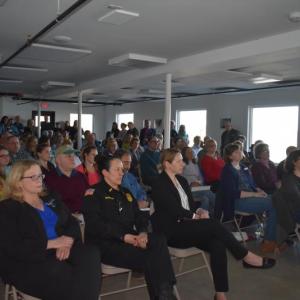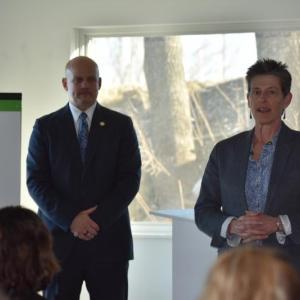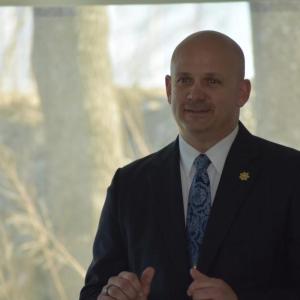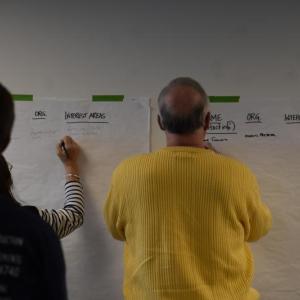Knox County signs up for Recovery Collaborative, considers programming options
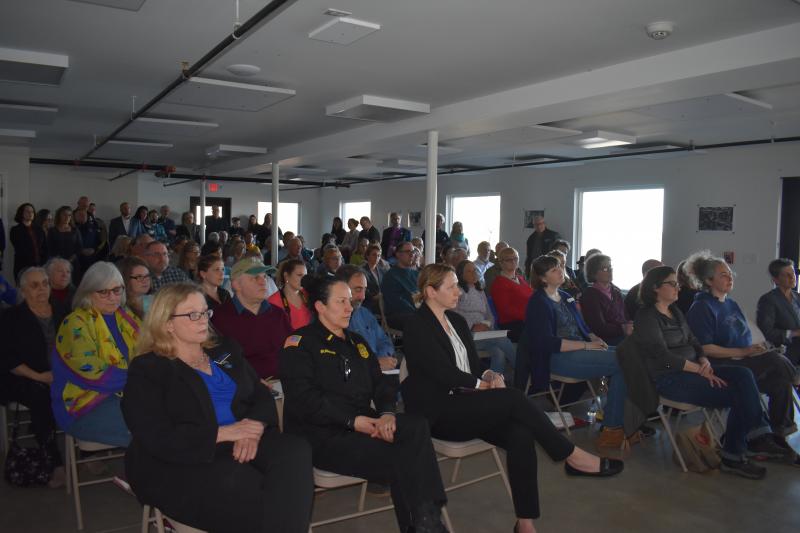 A large crowd attends the first Knox County Recovery Collaborative. (Photo by Sarah Thompson)
A large crowd attends the first Knox County Recovery Collaborative. (Photo by Sarah Thompson)
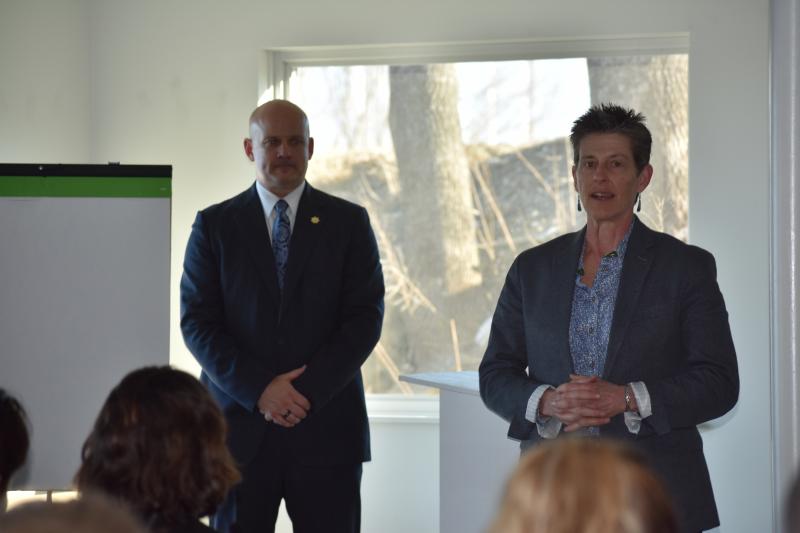 Sheriff Tim Carroll and Facilitator Carol Kelly address the audience. (Photo by Sarah Thompson)
Sheriff Tim Carroll and Facilitator Carol Kelly address the audience. (Photo by Sarah Thompson)
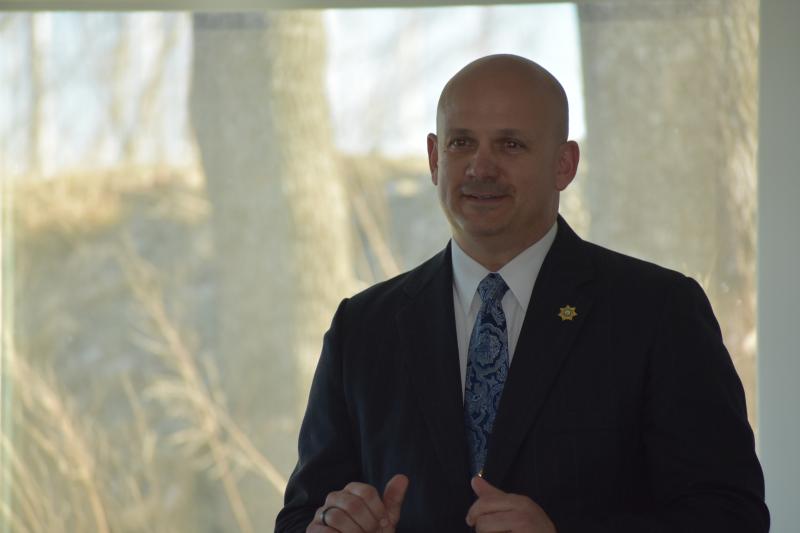 Sheriff Tim Carroll. (Photo by Sarah Thompson)
Sheriff Tim Carroll. (Photo by Sarah Thompson)
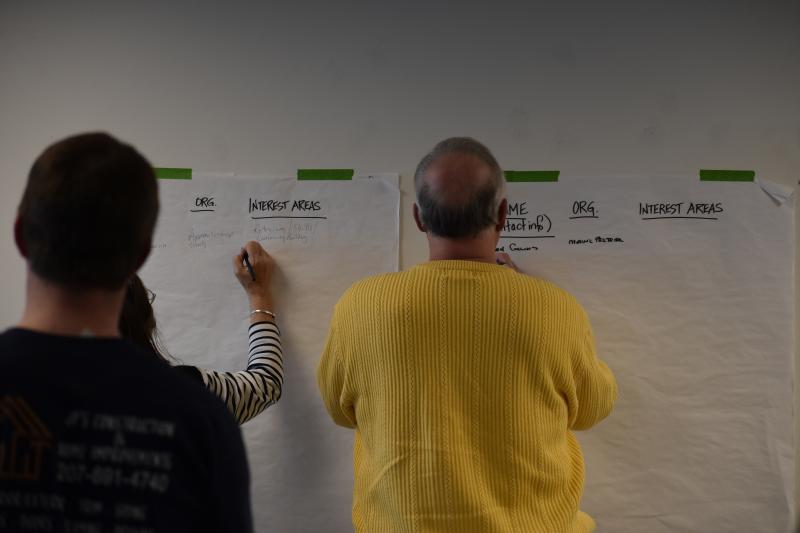 First a several resources offering assistance. (Photo by Sarah Thompson)
First a several resources offering assistance. (Photo by Sarah Thompson)
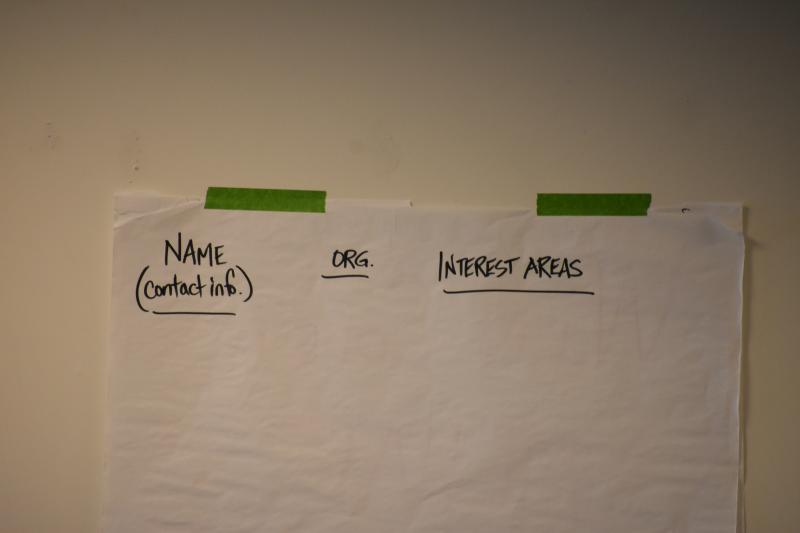 (Photo by Sarah Thompson)
(Photo by Sarah Thompson)
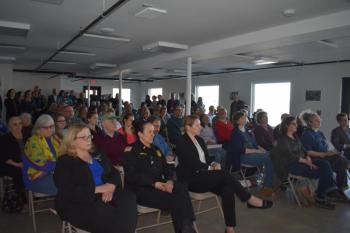 A large crowd attends the first Knox County Recovery Collaborative. (Photo by Sarah Thompson)
A large crowd attends the first Knox County Recovery Collaborative. (Photo by Sarah Thompson)
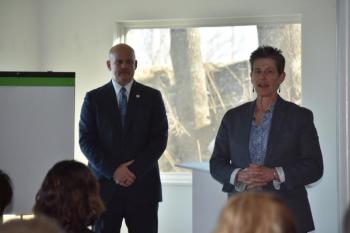 Sheriff Tim Carroll and Facilitator Carol Kelly address the audience. (Photo by Sarah Thompson)
Sheriff Tim Carroll and Facilitator Carol Kelly address the audience. (Photo by Sarah Thompson)
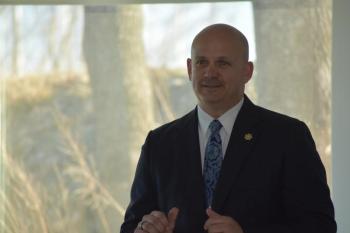 Sheriff Tim Carroll. (Photo by Sarah Thompson)
Sheriff Tim Carroll. (Photo by Sarah Thompson)
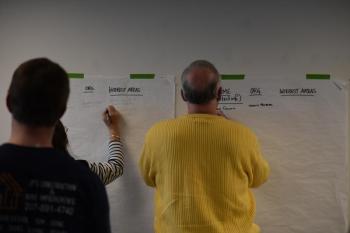 First a several resources offering assistance. (Photo by Sarah Thompson)
First a several resources offering assistance. (Photo by Sarah Thompson)
 (Photo by Sarah Thompson)
(Photo by Sarah Thompson)
ROCKLAND — The newly-formed Knox County Recovery Collaborative picked up steam in its war on substance abuse, Thursday, April 11, at the Steel House in Rockland.
In an information session that also served as the first meeting of the Knox County Recovery Collaborative, Knox County Sheriff Tim Carroll addressed the standing room only audience consisted of law enforcement, state legislators, health officials and former users of alcohol and drugs.
Through the KCRC, the Knox County Sheriff’s office, the Rockland, Rockport, Thomaston and Camden police departments are partnering with resources in the local community to address the harmful use and effects of heroin, fentanyl, opioids and other illicit substances in the county.
“With your efforts, the community’s efforts, we can make a difference in Knox County,” said Carroll. “No one is immune to this problem.”
At the presentation’s end, multiple audience members signed on as potential resources to the newly formed Collaborative. Based on those resources, the founding partners of KCRC will create a program using ideas of Waldo County’s Re-entry Center and Lincoln County’s Recovery Collaborative as guides.
The KCRC won’t be an exact duplicate of either one, though. Lincoln County has a re-entry program, where inmates stay an average of 17 to 18 months. Knox County has a jail, with an average inmate stay of two weeks, though it can take a person for up to nine months.
Starting indepth recovery programs in the County Jail when release is days away isn’t feasible, especially when former users in the meeting’s audience stated that 90 days of programming anywhere isn’t enough to be effective. Six months is more ideal.
Yet, it’s in the jail – that cooling off period – where the healing process is intended to begin.
And it’s immediately upon release that help with re-entry is critical, according to Holly Stover, Addiction Outreach Specialist with the Boothbay Harbor Police Department..
“The road to recovery is long and turbulent,” said Duncan Dwyer, of Health Equity Alliance, which has a Belfast office and offers free HIV and hepatitis testing, syringe exchange, and other services. “Nobody makes it through recovery if they die alone.”
The Knox County Jail has 70 beds, and on average, 70-80 percent of those inmates have some sort of substance abuse disorder.
Old school methods don’t work
A change is necessary, according to Carroll, who admitted that 20 years ago, he was a part of the old-school mentality. Anyone who committed a crime went to jail. Upon release, instead of assisting the inmate’s re-entry into the community, law enforcement looked for infractions. If found, the person returned to jail.
On top of that, drug addicts were viewed as druggies, junkies and potheads. What was then considered an abuse by choice, today substance abuse is considered a disorder.
In fact, according to Carroll, 70 percent of addicts are hooked on the medications prescribed to them for legitimate pain. They come from all walks of life, including those who continue to give of themselves as they fight that inner battle. And even, in the case of Carroll’s relative, are eulogized in front of an audience of 1,000 community members. He recounted the story of a family member who struggled for 10 years with a prescription drug addiction, and died.
Women in Maine are becoming addicted in an increasing rate, faster than most states in the U.S., said Carroll, as he shared statistics from the CDC. That relates to one in 12 babies in Maine being born drug affected. In 2017, 952 Maine babies were born drug affected.
Substance abuse addicts are not a waste to society, Carroll said. They have skills that the community can use.
A movement is already underfoot. Yet, more is needed.
While in the care of obstetricians, pregnant women with addictions are connected with counselors at Maine Behavioral Health, according to KCRC’s Kendra Emery, a physician for Pen Bay Medical Center.
A pilot 90-day drug program complete with Medical Assisted Treatment, recovery coach, and case manager is projected for Bolduc Corrections Center, in Warren, according to Ron Springel, from the newly formed Governor’s Office of Opioid Response.
The number of Recovery Residences changes frequently. As of April 21, Maine has 100 residences listed in the Maine Directory of Recovery Residences, which is published by Springel. Midcoast Recovery Coalition’s Friends House, in Rockland, is currently the only one in Knox County.
Springel’s office hopes to increase that state-wide number from 100 to 250, and 800 beds to 2,000 beds. Along with that, the State is working to create a housing voucher program to assist some of these residents.
At the same time, a bill in Maine’s legislature, LD 1073: To Implement an Intensive Drug Treatment Court Pilot Project in the Midcoast, failed to meet the required unanimous votes, April 11, according to District Attorney Natasha Irving. Irving urged the audience to flood legislators with emails and phone calls to get the bill re-activated.
That bill, according to its summary, would have directed the Maine Department of Health and Human Services and judicial branch to establish an intensive drug treatment court pilot project in the Midcoast.
“This bill does not legalize drugs,” said Rep. Pinny Beebe-Center, D-Rockland. “It does not change any laws around drugs as they relate to kids. And it does not eliminate the crimes of trafficking or furnishing drugs.”
Instead, the bill identifies that person as having a health crisis.
The bill considers a heavy user’s weekly amount, she said. “Therefore, instead of throwing traffickiing and everything else at them – there still are possessions, but they would go in to some treatment, as opposed to jail.”
What does recovery entail?
Recovery is a four-prong approach, according to Carroll: biological, psychological, sociological and spiritual. Though the solution for each individual varies, that solution can’t be just one of the prongs. Not just biological (Integrated Medication Assisted Treatment), or sociological (housing).
“It has to be a combination of such,” he said.
Of the KCRC, facilitator Carol Kelly pointed out the Collaborative’s contributors. Along with Gordon Smith, State director of Opioid Response (not in attendance), KCRC has direct access to local State representatives – for leadership on the policy front.
There is also leadership at the County and local levels.
According to Kelly, years ago, when the Legislature was trying to determine where to start with Maine’s war on drugs, Knox County was already holding forums and taking action.
“When you all were anxious to do stuff on the ground, and ready to take action, in the Legislature and at the State level, they were still trying to figure out what to do,” said Kelly.
“There’s just a lot of exciting stuff happening. Your partnership is incredible....You guys really are on the forefront of what it looks like when communities come together, work together, and figure out how to solve problems. I’m grateful to be here.”
Reach Sarah Thompson at news@penbaypilot.com
Event Date
Address
United States

